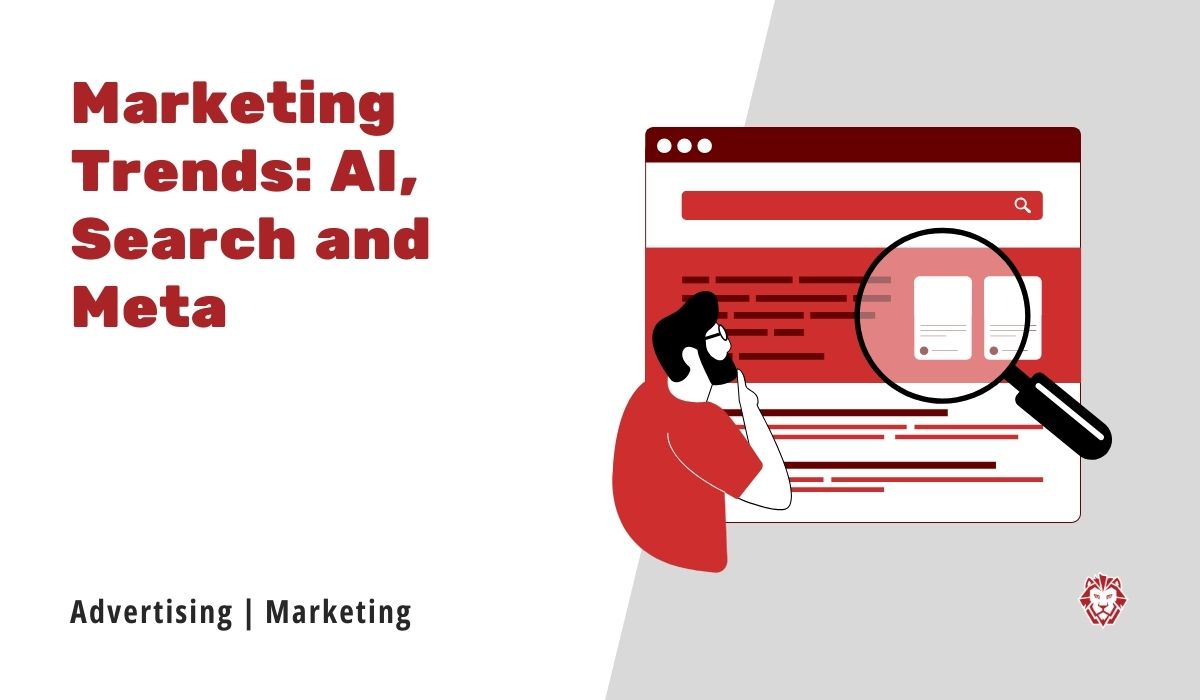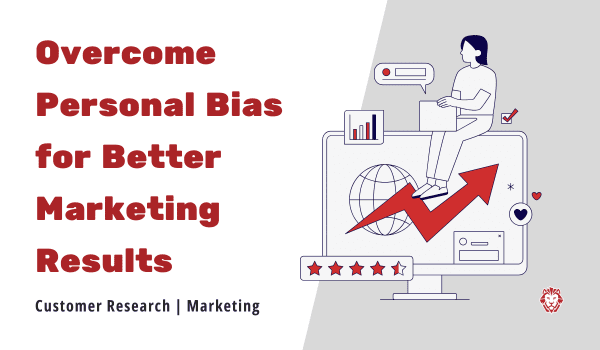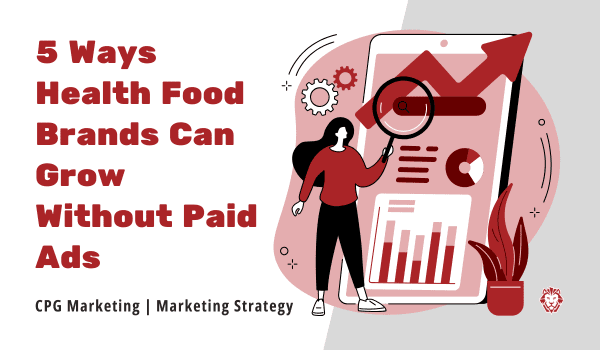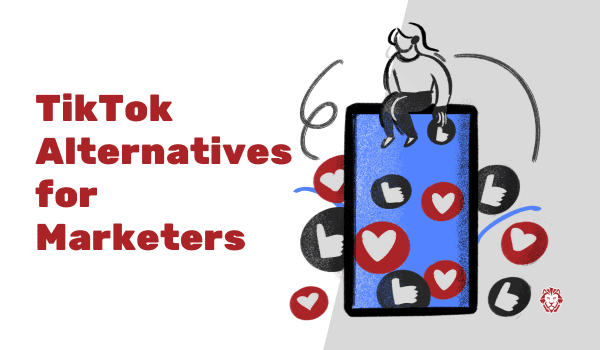
Marketing Trends: AI, Search and Meta
Marketing Trends: AI, Search and Facebook
In today’s rapidly evolving world of marketing, staying ahead of the curve is essential for success. As consumer behavior and technology continue to change, marketers need to adapt their strategies to effectively reach their target audience. In this article, we will explore the current marketing landscape and the role that technology, particularly artificial intelligence (AI), search engines, and Facebook, play in shaping marketing trends.
Understanding the Current Marketing Landscape
The marketing landscape has undergone significant transformations in recent years. With the rise of digital channels and increased connectivity, consumers are more empowered and informed than ever before. It has become crucial for marketers to understand the latest trends and leverage technology to engage with their target audience effectively.
In today’s fast-paced world, where technology is constantly evolving, marketers need to stay updated with the latest tools and strategies to stay ahead of the competition. The digital revolution has opened up new avenues for businesses to connect with their customers, but it has also created new challenges.
One of the key aspects of the modern marketing landscape is the role of technology. Technology has become an integral part of modern marketing strategies. From data analytics to automation tools, technological advancements have revolutionized the way marketers conceptualize and execute their campaigns. With the help of AI, marketers can now gain valuable insights, optimize targeting, and streamline their workflows.
Data analytics has become a game-changer in the marketing industry. Marketers can now collect and analyze vast amounts of data to understand consumer behavior and preferences. This data-driven approach allows businesses to create targeted and personalized marketing campaigns that resonate with their audience.
Automation tools have also played a significant role in transforming marketing strategies. Marketers can now automate repetitive tasks, such as email marketing and social media posting, freeing up their time to focus on more strategic initiatives. This not only improves efficiency but also allows marketers to deliver a consistent brand experience across different channels.
Another major factor shaping the marketing landscape is the impact of social media. Social media platforms, such as Facebook, have transformed the marketing landscape. Businesses can now reach a vast audience quickly and cost-effectively through strategic social media marketing campaigns. The ability to engage with consumers directly and create personalized content has significantly impacted the way brands interact with their customers.
With the rise of influencer marketing, social media has become a powerful tool for businesses to build brand awareness and credibility. Influencers, who have a large following on social media, can help businesses reach their target audience in a more authentic and relatable way. By partnering with influencers, brands can tap into their followers’ trust and loyalty, driving engagement and conversions.
Furthermore, social media has also given rise to user-generated content (UGC). UGC refers to any form of content created by consumers, such as reviews, testimonials, and social media posts. Businesses can leverage UGC to build social proof and trust among their target audience. By encouraging customers to share their experiences and opinions, brands can create a sense of community and authenticity around their products or services.
In conclusion, the current marketing landscape is constantly evolving, driven by technological advancements and the rise of social media. Marketers need to stay updated with the latest trends and leverage technology to engage with their audience effectively. By embracing data analytics, automation tools, and social media marketing strategies, businesses can stay ahead of the competition and create meaningful connections with their customers.
The Rise of Artificial Intelligence in Marketing
Artificial intelligence is gaining prominence in the field of marketing. Its ability to analyze vast amounts of data and generate insights has revolutionized the way marketers develop and implement their strategies.
One area where AI has made a significant impact is in customer segmentation. Traditionally, marketers would manually divide their target audience into different segments based on demographic data. However, with the help of AI, marketers can now analyze customer behavior patterns and preferences in real-time. This allows them to create more accurate and personalized segments, resulting in more effective marketing campaigns.
Another way AI is changing marketing is through its ability to automate tasks that were previously time-consuming. For example, data analysis, which used to take hours or even days, can now be done in a matter of minutes with the help of AI algorithms. This not only saves marketers valuable time but also allows them to make data-driven decisions faster.
How AI is Changing Marketing
AI is not only automating data analysis but also campaign optimization. Marketers can now use machine learning algorithms to identify patterns in consumer behavior and predict their future actions. This enables them to optimize their campaigns in real-time, ensuring that they are always targeting the right audience with the right message at the right time.
Personalization is another area where AI is making a significant impact. With the help of AI, marketers can now create highly personalized campaigns that resonate with individual customers. By analyzing customer data, AI algorithms can determine the most relevant content, offers, and recommendations for each customer, resulting in higher engagement and conversion rates.
The Future of AI in Marketing
As AI continues to advance, its potential in marketing is limitless. One area that holds great promise is chatbots. AI-powered chatbots can provide personalized customer support, answering customer queries and providing recommendations based on their individual needs and preferences. This not only improves customer satisfaction but also frees up human resources to focus on more strategic tasks.
AI is also transforming content creation. With the help of natural language processing algorithms, AI can generate high-quality content that is tailored to specific target audiences. This not only saves time and resources but also ensures that the content is relevant and engaging.
Furthermore, AI can help marketers identify emerging trends and opportunities. By analyzing vast amounts of data from various sources, AI algorithms can detect patterns and make predictions about future market trends. This allows marketers to stay ahead of the competition and make informed decisions about their marketing strategies.
In conclusion, the rise of artificial intelligence in marketing is revolutionizing the way marketers develop and implement their strategies. From automating tasks to personalizing campaigns, AI is enabling marketers to achieve better results and stay ahead of the competition. Embracing these advancements is crucial for marketers who want to thrive in the ever-evolving digital landscape.
The Power of Search in Digital Marketing
In the digital age, search engines have become the gatekeepers of information. Understanding search engine optimization (SEO) and leveraging it effectively has become paramount for businesses looking to increase their online visibility and reach their target audience.
Search engine optimization (SEO) is the practice of optimizing a website to improve its visibility and ranking on search engine results pages (SERPs). It involves various techniques and strategies to ensure that a website appears at the top of search engine results when users search for keywords related to the business.
One of the key reasons why SEO is important in marketing is because it helps businesses drive organic traffic to their websites. When a website ranks higher on search engine results, it is more likely to attract clicks from users. This organic traffic is valuable because it consists of users who are actively searching for products or services related to the business, making them more likely to convert into customers.
The Importance of SEO in Marketing
SEO ensures that your website appears at the top of search engine results when users search for keywords related to your business. By optimizing your website’s content and structure, you can improve your online visibility and drive organic traffic to your site.
Furthermore, SEO helps build credibility and trust for your brand. When a website ranks high on search engine results, users perceive it as more trustworthy and authoritative. This can significantly impact the user’s decision-making process, as they are more likely to choose a website that appears at the top of the search results.
Moreover, SEO is a cost-effective marketing strategy compared to other digital marketing methods. While paid advertising can generate immediate results, it requires a continuous investment. On the other hand, SEO can provide long-term benefits with a one-time investment in optimizing the website. This makes it a sustainable and cost-efficient approach for businesses of all sizes.
The Evolution of Search Marketing
Search marketing has evolved from merely optimizing websites to encompass various disciplines, such as pay-per-click (PPC) advertising and local search optimization. Marketers need to understand these nuances and develop comprehensive search marketing strategies to stay competitive in today’s digital landscape.
Pay-per-click (PPC) advertising is a form of online advertising where advertisers pay a fee each time their ad is clicked. It allows businesses to bid for ad placement in a search engine’s sponsored links section, appearing above or alongside organic search results. PPC advertising can be a valuable addition to an SEO strategy, as it provides immediate visibility and can target specific keywords or demographics.
Local search optimization is another important aspect of search marketing. With the rise of mobile devices, more and more users are searching for local businesses or services near their location. Optimizing a website for local search involves strategies such as creating location-specific landing pages, optimizing Google My Business profiles, and obtaining positive reviews from local customers. This helps businesses increase their visibility in local search results and attract customers in their area.
In conclusion, search engine optimization (SEO) plays a crucial role in digital marketing. It helps businesses improve their online visibility, drive organic traffic, and build credibility. With the evolution of search marketing, incorporating strategies such as pay-per-click advertising and local search optimization can further enhance a business’s online presence. By staying up-to-date with the latest trends and techniques in search marketing, businesses can effectively reach their target audience and stay competitive in the digital landscape.
Facebook’s Influence on Marketing
With over 2.8 billion monthly active users, Facebook has become a marketing powerhouse. The platform offers robust targeting options and diverse ad formats, making it an effective channel to reach your target audience.
Utilizing Facebook for Effective Marketing
When used strategically, Facebook can help businesses connect with their audience, build brand awareness, and drive conversions. From running targeted ad campaigns to creating engaging content, marketers can leverage Facebook’s features to achieve their marketing goals.
The Pros and Cons of Facebook Marketing
While Facebook offers immense opportunities, it also comes with its share of challenges. Ad fatigue, increased competition, and changing algorithms can make Facebook marketing complex. Marketers need to carefully strategize and adapt as the platform evolves.
Integrating AI, Search, and Facebook in Your Marketing Strategy
To achieve a well-rounded marketing strategy, it is crucial to integrate AI, search, and Facebook effectively. Each channel brings unique capabilities, and leveraging their strengths in a balanced manner can maximize your marketing efforts.
Creating a Balanced Marketing Approach
An effective marketing strategy combines the insights gained from AI analytics, the reach of search engine optimization, and the targeting capabilities of Facebook advertising. By integrating these components, marketers can develop campaigns that resonate with their audience and drive meaningful results.
Predictions for Future Marketing Trends
Looking ahead, the marketing landscape will continue to evolve, driven by advancements in AI, search technology, and social media platforms. Marketers who adapt to these changes and are willing to experiment with new strategies will be well-positioned for success.
The current marketing landscape is shaped by AI, search engines, and social media platforms like Facebook. Embracing these trends and leveraging them effectively can help marketers engage with their target audience, drive conversions, and stay ahead of the competition. By understanding the role of technology, harnessing the power of search, and utilizing Facebook strategically, marketers can create comprehensive and impactful marketing campaigns that deliver results.
Need help with your Marketing in 2024? Connect with our team today!



